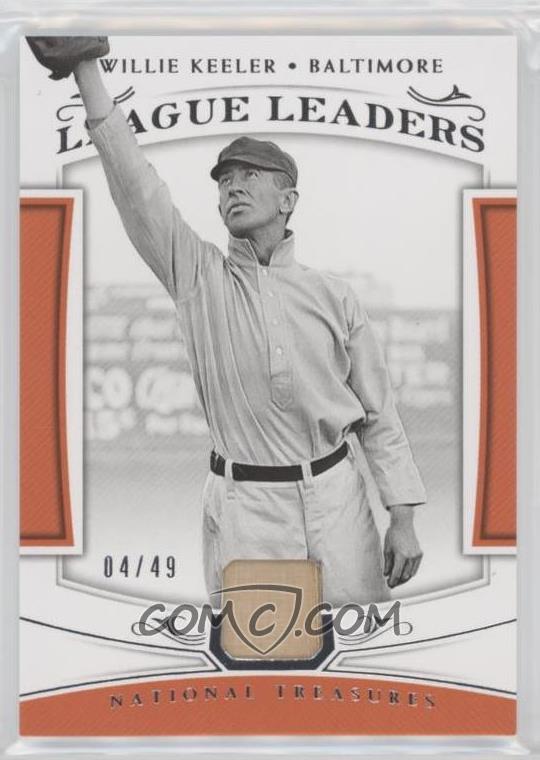One of the greatest things about reading all these sports history books is my increased interest in players from before my time. As I learned about the ballplayers of 1964, I started picking up cards for the ones who interested me. And Red Smith's book may not have been the most appealing, but I still gained a bit of appreciation for some of the stars found in other sports. Satchel Paige was always some mythical legend to me, but after reading about him I really appreciated his love of the game.
Last month (boy, that was long ago), I shot through about one book per week. March involved long commutes by train, so I had plenty of time for page turning. So, after finishing the Red Smith compilation, I turned to Willie Keeler: From the Playgrounds of Brooklyn to the Hall of Fame, by Lyle Spatz.
This book is quite long, especially for a biography of a player who was on the field over 100 years ago. Lyle Spatz works for SABR, and has written several other baseball books and articles. You're looking at three hundred pages, and this is no pulp novel, either.
The book is broken up into five parts, representing his time before and after baseball and the three teams he played for. But despite the title of the book, only about 20 pages are given to Keeler's upbringing and early life, and another 20 pages about his life after retirement. So you're looking at a lot of baseball.
Spatz writes a great deal about the teams Keeler is on, and the book follows several characters throughout Keeler's career, as many of them come back after changing teams or leaving baseball altogether. Not only are you reading about Willie Keeler, but you're also learning about John McGraw, Hughie Jennings, Joe Kelley, and other members of the 1890s Orioles. And the early history of the Superbas (later the Dodgers) and the Yankees, as Keeler was on all of those teams.
One thing Spatz does throughout the book is discuss individual game results. There is a lot of detail here, as these singular events help the reader understand Keeler and his teams better. It took some getting used to reading what amounts to 100-year-old play-by-play accounts, but as I got deeper into the book I started to appreciate how they helped tell Keeler's story.
There is a lot of reverence in Spatz's writing, and while he admits the 1890s Orioles were a rough team, he glorifies the violence. Granted, much of what he wrote about continued on for the better part of a century, or continues to this day. Keeler is set aside as a gentleman, though, one who generally didn't play such dirty baseball.
Another thing you will find in this book is a lot of general history. Keeler played during the days of the American Association, the formation of the American League, and the Federal League. There is a lot about how these leagues affected the game and the teams Keeler played for.
I certainly appreciate Keeler now; he was just some old player who had the longest hitting streak before DiMaggio.
Honestly, this is a long read. If you are interested in turn-of-the-century baseball, then definitely pick this one up. I learned a lot about Keeler, the early Orioles, Superbas, and the beginning of the Yankees, plus baseball history in general. Not my favorite book, but it was interesting enough to keep me reading until the end.
I picked up this Keeler relic for my collection after reading this book.
Get ready for three more of these posts! All that reading means a lot of writing! See you in 12 hours...



Haven't read that one, but I did read "Where They Ain't" by Burt Soloman, also about Keeler and the early Orioles. Good book.
ReplyDeleteI'm much better about reading blog posts reviewing books rather than the books themselves. Can't wait to see the next book.
ReplyDeleteTAIO: If I come across it, I'll be sure to pick it up!
ReplyDeleteFuji: Until recently, me too. Most of the change is simply changing what I do on the train. I've always loved reading books, but never made the time.